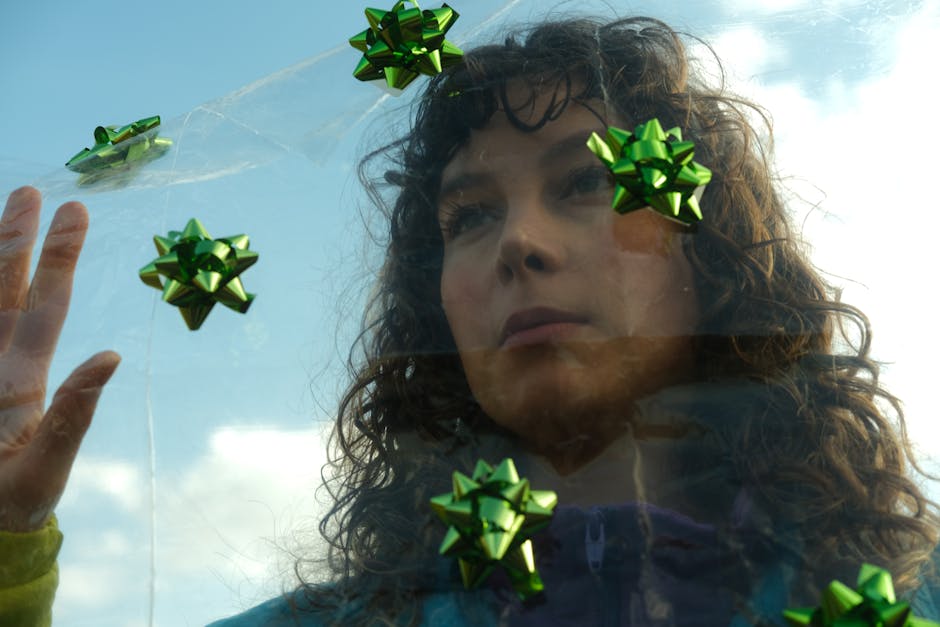My Review of Podcasts That Challenge My Assumptions.
My Review of Podcasts That Challenge My Assumptions.
In a world increasingly polarized and driven by algorithms that reinforce our existing beliefs, actively seeking out content that makes us uncomfortable—intellectually speaking—has become a personal imperative. For me, this quest has led directly to the rich, diverse landscape of podcasts. This isn’t just about entertainment; it’s about intellectual growth, a deliberate effort to dismantle my own echo chamber, brick by carefully constructed brick. Over the past few years, I’ve committed to a listening diet specifically designed to question my long-held convictions, expose me to radically different viewpoints, and ultimately, evolve my understanding of the world. This is my personal journey, a review of the audio companions that haven’t just informed me, but profoundly reshaped the very foundations of my thinking.
Why I Actively Seek Out Assumption-Challenging Podcasts
My motivation isn’t born from a desire to be contrarian, but from a genuine curiosity about truth and a healthy skepticism of my own certainties. We all harbor assumptions – about how the world works, about other people’s intentions, about history, science, and even ourselves. These assumptions, often formed unconsciously from our upbringing, culture, and personal experiences, provide a convenient framework for understanding complexity. However, they can also become intellectual blinders, preventing us from seeing nuance, embracing new information, or empathizing with perspectives outside our immediate sphere.
The digital age, while connecting us, also paradoxically makes it easier to insulate ourselves. Social media algorithms, personalized news feeds, and even friend groups can create powerful echo chambers where our existing beliefs are constantly validated, rarely questioned. I recognized this creeping intellectual complacency in myself. I wanted to prevent my worldview from fossilizing, to keep it pliable and responsive to new evidence and diverse arguments. Podcasts, with their intimate, often long-form nature, became the perfect medium for this self-challenge. They allow for deep dives into complex topics, presented by experts and storytellers who often approach issues from angles I’d never considered, forcing me to confront my own exploring cognitive biases head-on.
The Subtle Art of Intellectual Discomfort: How Podcasts Prompt Reevaluation
Challenging assumptions isn’t always comfortable. It often involves a degree of intellectual discomfort, a sensation akin to cognitive dissonance, where a cherished belief clashes with compelling new information. This is precisely the feeling I seek out in these podcasts. They don’t just present facts; they weave narratives, explore ethical dilemmas, deconstruct historical events, and introduce me to lived experiences vastly different from my own. The brilliance lies in their ability to present these alternative viewpoints not as attacks on my intelligence, but as invitations to a broader, more nuanced understanding.
For example, some podcasts excel at dissecting common sense notions, revealing their often-flawed origins or unintended consequences. Others bring on guests who articulate positions I might initially find baffling, but through careful listening, I begin to grasp the underlying logic, the different values, or the alternative interpretations of data that lead to such conclusions. It’s a process of active listening and internal debate, where I’m constantly asking myself: “Why do I believe what I believe? Is my reasoning sound? What evidence would genuinely change my mind?” This isn’t about being swayed easily, but about rigorously testing my own mental models and being open to their refinement or even complete overhaul. This practice is fundamental to a deep dive into critical thinking, moving beyond simple acceptance to genuine analysis.
Specific Soundscapes That Forced My Reevaluation
Over time, certain podcasts have stood out for their consistent ability to shake up my mental landscape. Here are a few that have been particularly effective:

*You’re Wrong About* – Deconstructing Popular Misconceptions
This podcast, hosted by Sarah Marshall and Michael Hobbes (and later just Sarah), is a masterclass in re-examining historical events and cultural phenomena that we think we understand. They meticulously research and debunk myths surrounding figures like Tonya Harding, the Satanic Panic, or the obesity crisis. What challenged me wasn’t just learning new facts, but realizing how easily dominant narratives are formed, perpetuated, and internalized, even when they’re based on flimsy evidence or outright distortions. It forced me to question not just *what* I believe, but *why* I believed it, and to recognize the human tendency to simplify complex stories into convenient villains and heroes. It’s a powerful lesson in media literacy and historical skepticism.
*Hidden Brain* – Unpacking the Science of Human Behavior
Hosted by Shankar Vedantam, *Hidden Brain* delves into the unconscious patterns that drive human behavior, decision-making, and social interactions. It often uses scientific research and compelling stories to reveal the surprising forces at play beneath the surface of our everyday lives. For me, this podcast consistently challenges my assumptions about individual agency and rationality. Episodes on topics like the power of suggestion, the psychology of persuasion, or the impact of social norms on our choices have made me question how much of my own thinking is truly autonomous versus influenced by unseen factors. It cultivates a deeper understanding of human nature, making me more empathetic to others’ apparent irrationalities and more introspective about my own.
*The Ezra Klein Show* – Engaging with Nuance in Complex Issues
Ezra Klein is known for his ability to conduct long-form, thoughtful interviews with academics, authors, and policymakers across the political and intellectual spectrum. What I appreciate most is his commitment to exploring the underlying frameworks and first principles of his guests’ arguments. This podcast has challenged my political and social assumptions by exposing me to incredibly articulate and well-reasoned perspectives that diverge significantly from my own. Instead of just hearing a different opinion, I get to understand the *logic* behind it, the data points considered, and the moral or philosophical underpinnings. It teaches me to listen for understanding, not just for points of disagreement, and to recognize that complex problems rarely have simple, singular solutions.
*Throughline* – Recontextualizing History
From NPR, *Throughline* is a history podcast that explores the historical context of current events. It challenges my assumptions by demonstrating how often our present-day understanding of issues is incomplete without a deep dive into their historical roots. Episodes often dismantle simplistic historical narratives, revealing layers of complexity, forgotten figures, and alternative interpretations. This has been particularly potent in challenging my assumptions about national identity, geopolitical conflicts, and social movements. It underscores the idea that history isn’t a fixed, linear story, but a dynamic, often contested narrative that requires constant re-evaluation.
Beyond the Echo Chamber: The Transformative Power on My Worldview
The cumulative effect of consistently engaging with these assumption-challenging podcasts has been nothing short of transformative. Firstly, my critical thinking skills have sharpened considerably. I’m more adept at identifying logical fallacies, questioning sources, and recognizing my own biases. I’ve learned that certainty can be a dangerous state, and that intellectual humility—the willingness to admit “I don’t know” or “I might be wrong”—is a profound strength.
Secondly, my capacity for empathy has expanded. By actively listening to viewpoints I initially found foreign or even




Post Comment